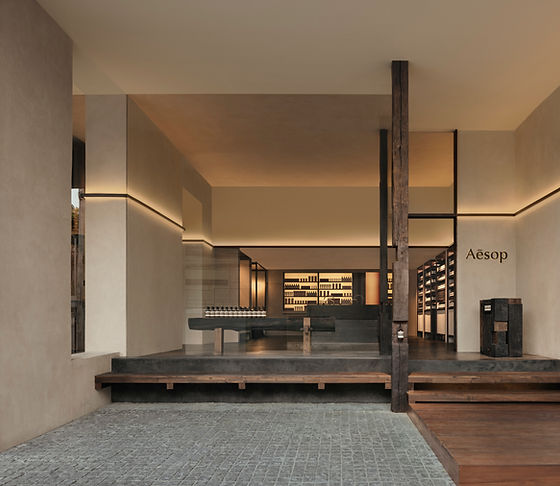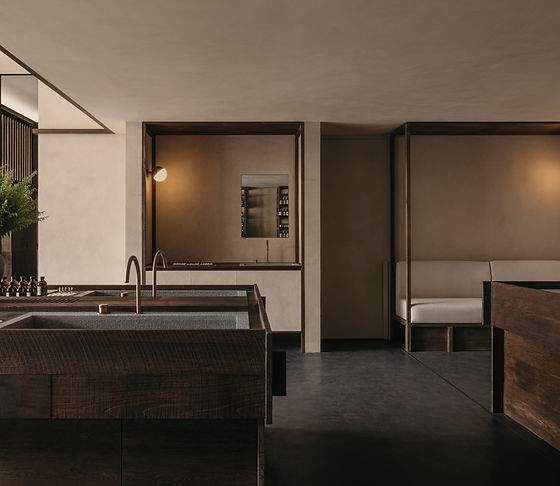

Test Project
Location
Bangkok , Thailand
Building Type
Store
Completion Year
2024
Gross Built Area
190 sq.m.
Lead Architect
Patcharada Inplang
Thongchai Chansamak
Contractor
Legend Interior
Photo credits
Courtesy of Aesop by Studioperiphery
Publishing
Room Magazine
Aesop Thonglor is a project that highlights the use of micro domestic materials, particularly wood. It’s not just about showcasing local craftsmanship and architectural atmosphere, but also about repurposing existing wood from the original building to fit the brand’s needs.
Inside, the store is divided into three main areas:
– Shop Area: This includes a sink counter, shelves, point-of-sale (POS) area, and visual merchandise displays. Wood is used simply to showcase its natural beauty, with structural lines only where necessary. The joints and details are inspired by traditional Thai wood joinery, keeping the material’s original texture and imperfections. The sink is made from the same type of black granite used in Thai kitchens, adding a familiar, everyday touch.
– The Sensorium room, or the room with sliding walls, is a space dedicated to scents, designed to create an experience of serenity and dim light, where the primary sense is smell. The sliding walls are crafted from repurposed teak, arranged vertically to form a semi-enclosed sanctuary. This design draws from the wisdom of local traditions, honoring the Northern Thai architectural heritage.
Sliding walls, common in rural homes, show the ingenuity of local craftsmen, balancing function and form. These walls, often found in kitchens or wash areas, allow for ventilation and privacy, effortlessly sliding open and closed. This simple yet clever detail continues to be used, demonstrating the enduring legacy of folk craftsmanship.
At the heart of the room, amid the shelves of fragrances, stands a tea-warming stove modeled after traditional earthen stoves. These stoves, central to rural Thai kitchens, symbolize a gathering place for family and friends, where the warmth of the fire fosters connection. Though a small space, it embodies the richness and joy of rural life, the meticulous attention to daily living, and serves as a poetic space for both the simple acts of eating and the deep conversations of life.
This poetic space is a cherished element of the project, blending the profound with the everyday.
